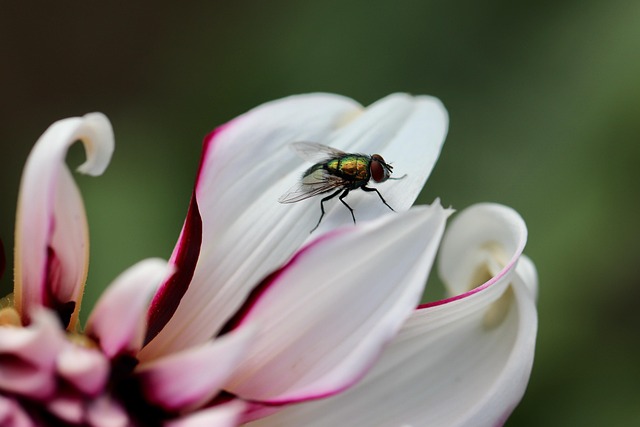Understanding fly behavior is crucial for effective fly control services. Modern methods combine behavioral insights with advanced technologies like automated monitoring and precise chemical applications for swift, sustainable results. Future fly control services will leverage artificial intelligence (AI), robotics, data analysis, and eco-friendly solutions to provide sophisticated, cost-efficient, and environmentally safe fly management strategies, minimizing chemical pesticides and preserving biodiversity.
In the relentless pursuit of hygienic environments, advanced technologies are revolutionizing fly extermination. This article delves into cutting-edge strategies for managing these persistent pests, focusing on innovative solutions and future trends in fly control services. From understanding fly behavior to integrating sophisticated technology, we explore eco-friendly approaches that ensure safety while delivering effective results. Discover how modern techniques are transforming the landscape of fly management.
Understanding Fly Behavior: Uncovering the Secrets to Effective Control
Understanding the behavior of flies is a crucial step in implementing effective fly control services. These pests are highly adaptive and can quickly develop resistance to traditional methods, making it essential to employ sophisticated strategies for their extermination. By studying their habits, scientists and pest management professionals can identify weak points in fly populations, enabling them to design targeted and efficient solutions.
Flies exhibit complex behaviors, from seeking out specific food sources to establishing nesting grounds. Certain species prefer moist environments, while others are drawn to organic matter, garbage, or even human waste. Knowing these preferences allows for the strategic placement of traps and baits, disrupting their breeding cycles and feeding patterns. Modern fly control services leverage this knowledge, combining behavioral insights with advanced technologies like automated monitoring systems and targeted chemical applications to achieve swift and sustainable results.
Modern Techniques: Innovative Solutions for Fly Extermination
Modern techniques in fly extermination offer innovative solutions for both residential and commercial fly control services. Gone are the days of relying solely on traditional methods like insecticides and traps. Today, advanced technologies provide more effective, safer, and environmentally friendly options. For instance, high-tech sensors and automated systems can detect and eliminate flies in real-time, minimizing the need for chemical interventions.
These modern solutions include heat treatment, which uses targeted heat to kill flies, and UV light traps that attract and electrocute them. Some cutting-edge methods even employ biological control agents like bacteria or parasites specifically targeting fly populations. These innovative approaches not only ensure robust fly control services but also contribute to a healthier environment and reduced chemical exposure for both humans and pets.
Integrating Advanced Technologies: The Future of Fly Control Services
The future of fly control services lies in the seamless integration of advanced technologies, offering more precise, efficient, and environmentally friendly solutions. Innovations like artificial intelligence (AI) and machine learning are transforming how we identify and eliminate fly habitats. These technologies can analyze vast data sets to predict fly movements and optimize the deployment of targeted treatments, reducing waste and minimizing environmental impact.
Additionally, the rise of robotics and automated systems is revolutionizing fly control. Robotic devices equipped with high-resolution cameras and advanced sensors can detect and destroy flies in hard-to-reach areas, enhancing overall effectiveness. These technologies not only improve sanitation and public health but also provide businesses with more sophisticated and cost-efficient fly management strategies.
Ensuring Safety and Sustainability: Eco-Friendly Approaches in Fly Management
In the pursuit of efficient fly extermination, it’s paramount to balance effectiveness with safety and sustainability. Traditional methods often rely on chemical pesticides, but these can pose risks to human health and the environment. As such, many modern fly control services are pivoting towards eco-friendly approaches, leveraging advanced technologies to minimize these impacts. Natural repellents, biological controls, and innovative non-chemical solutions are gaining traction, offering safer alternatives for both people and ecosystems.
These sustainable practices not only ensure the well-being of communities but also contribute to long-term environmental health. By avoiding harmful chemicals, fly control services can prevent water contamination, preserve biodiversity, and mitigate ecological disruptions. This shift towards eco-conscious solutions reflects a growing awareness of our responsibility to maintain a balanced ecosystem while effectively managing pest populations.
Advanced technologies are reshaping the landscape of fly control services, offering more efficient and sustainable solutions. By understanding fly behavior and integrating innovative techniques, professionals can now provide targeted and effective extermination methods. Moving forward, these cutting-edge technologies promise a future where fly management is both safer and more environmentally conscious, ensuring a comfortable and hygienic living environment for all.
